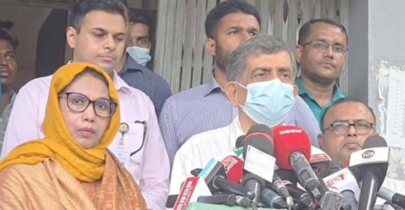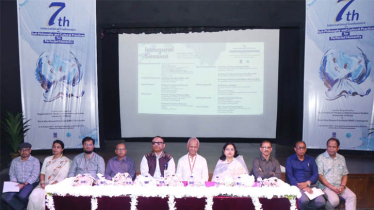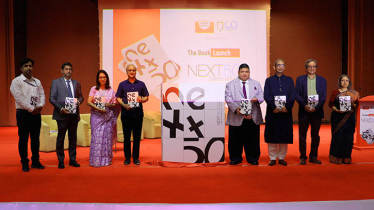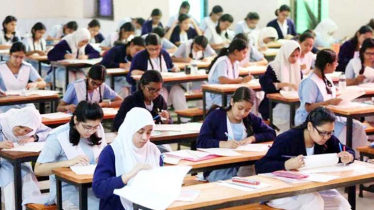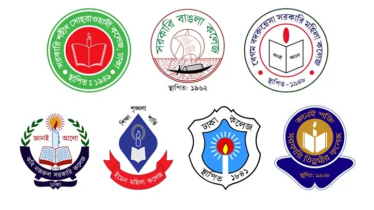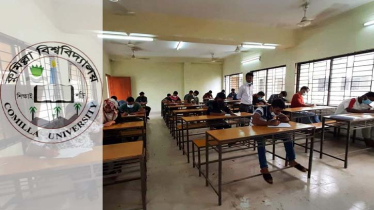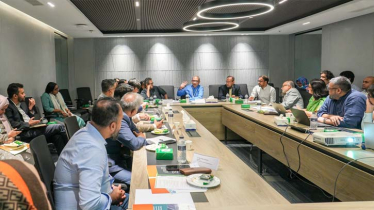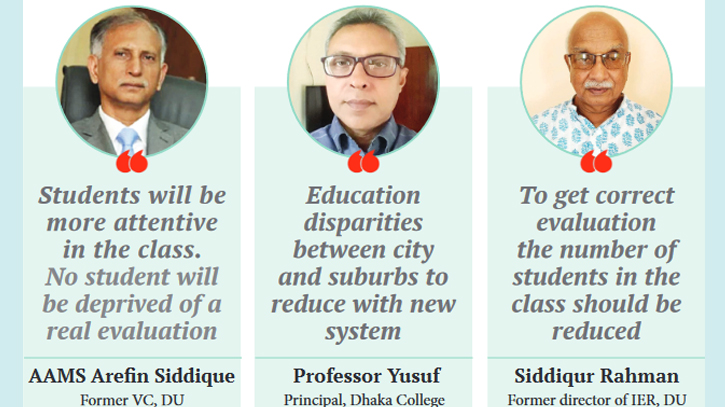
Photo: Messenger
According to the new curriculum, the evaluation framework for the SSC examination will provide a more accurate assessment of students, believe the country's educationists. They note that the written portion of this assessment will carry a 65 percent weight, while the practical portion will carry 35 percent. Therefore, increased attention to class and school activities is essential in this method. This approach is expected to reduce the disparity in education quality between urban and public schools. However, some experts suggest reducing the number of students per class to alleviate the assessment burden on teachers.
The Ministry of Education has finalised a center-based results system according to the new curriculum, excluding the previous GPA system. This decision was discussed at the Joint National Curriculum Coordination Committee (NCCC) meeting for secondary, technical, and madrasa levels held at the Ministry of Education on Monday.
Under the new rules, the weightage of the written portion will be 65 percent, and the practical portion will be 35 percent. Each subject will be assessed over a maximum of one school day, and results will no longer be published based on GPA as before.
The National Curriculum and Textbook Board (NCTB) has stated that Monday's meeting gave final approval to the draft evaluation strategy with some observations. Once the strategy is formally documented, the NCTB will communicate the details of the evaluation structure accordingly.
However, as discussed earlier, the results will be interpreted according to the seven-scale cells.
The names of these seven scales are Ananya (Unique), Arjanmukhi (Accomplishing), Agragami (Pioneering), Sakriyo (Proactive), Anusandhani (Inquisitive), Bikashman (Developing), and Praramvik (Beginning)).
For example, the highest scale, 'Unique,' would indicate that the student has achieved the ultimate level of proficiency in all subjects, while 'Early' would represent the lowest level of proficiency.
Instead of numerical grades, these levels will now be denoted by English letters. However, this letter grading will not be based on numbers as it is now. Initially, the draft evaluation framework suggested that each subject would be tested over five hours. However, the NCCC meeting decided to be more flexible, allowing for evaluation over a maximum of one school day for each subject.
According to the new curriculum, if a student fails in one or two subjects in the SSC examination, they can still be admitted to class XI, subject to conditions. The student must pass the failed subjects within the next two years of the SSC examination. However, if a student fails in three or more subjects, they cannot advance to class XI.
Additionally, the new curriculum eliminates the selective examination (test) in class 10, which currently allows students to take the SSC examination upon passing. Instead, students must attend 70 percent of the working days in class 10 to be eligible to take the public assessment or SSC examination.
Professor Md. Moshiuzzaman, a member of the organisation currently in charge of the Chairman of NCTB (Education), stated that the evaluation strategy decided by NCTB has been approved with some amendments in the NCCC meeting. Once the working paper is available, everyone will be informed. Meanwhile, since the new curriculum has not yet been finalised for madrasas, it has been decided that the entrance exam will be conducted as before.
The Daily Messenger spoke to prominent educationists about the benefits students will receive under this new system. Former Vice-Chancellor of Dhaka University, Professor Dr. AAMS Arefin Siddique, told the Daily Messenger, "I have not yet conducted detailed research on the new curriculum. However, I think that the importance of education will increase with the opportunity to award marks based on self-examination and the observation of class teachers. Since 65 marks are given through examination and teachers have the opportunity to award 35 marks considering various aspects of the class, no student will be deprived of a real evaluation. This method will encourage students to focus on their classes and foster a good relationship between students and teachers. Especially if a student attends classes regularly, there is little chance of them getting bad results."
Dhaka College Principal Professor Mohammad Yusuf told The Daily Messenger that it was really important to change the traditional education system. "Many are fussing about it without understanding it. This educational system will reduce the urban and rural disparity in education. What we mean by true urban education will come here. In practice, students will do well later," he said.
He also mentioned that most scientists faced skepticism during their groundbreaking discoveries, which were later praised. "There can be many dos and don'ts here, giving our experts a chance to work on it," he added.
Former director of Dhaka University's Institute of Education and Research (IER), Professor Dr. Siddiqur Rahman, said, "The higher the grading level of assessment, the better. This makes the assessment more accurate. But the question is about skills and infrastructure. Whether teachers are all competent for this assessment. Even if they are trained, they don't seem to be able to master it quickly. As a result, the outcomes might not be as expected."
He said, "The scale with which you measure rice, will you measure gold with that scale? That won't happen. A proper assessment requires a proper scale. Starting the evaluation without fixing the scale will not result in an accurate evaluation. The number of students per class should be reduced to ease the assessment burden on teachers."
Messenger/Disha

